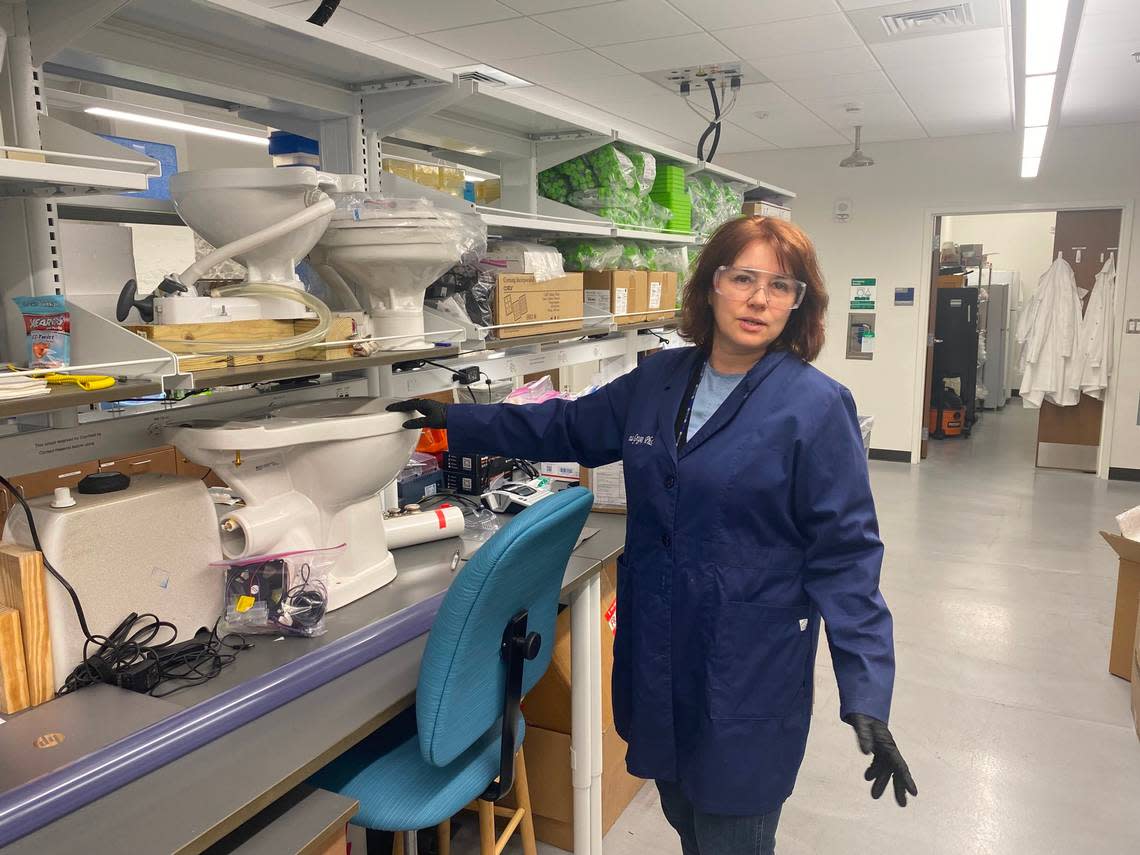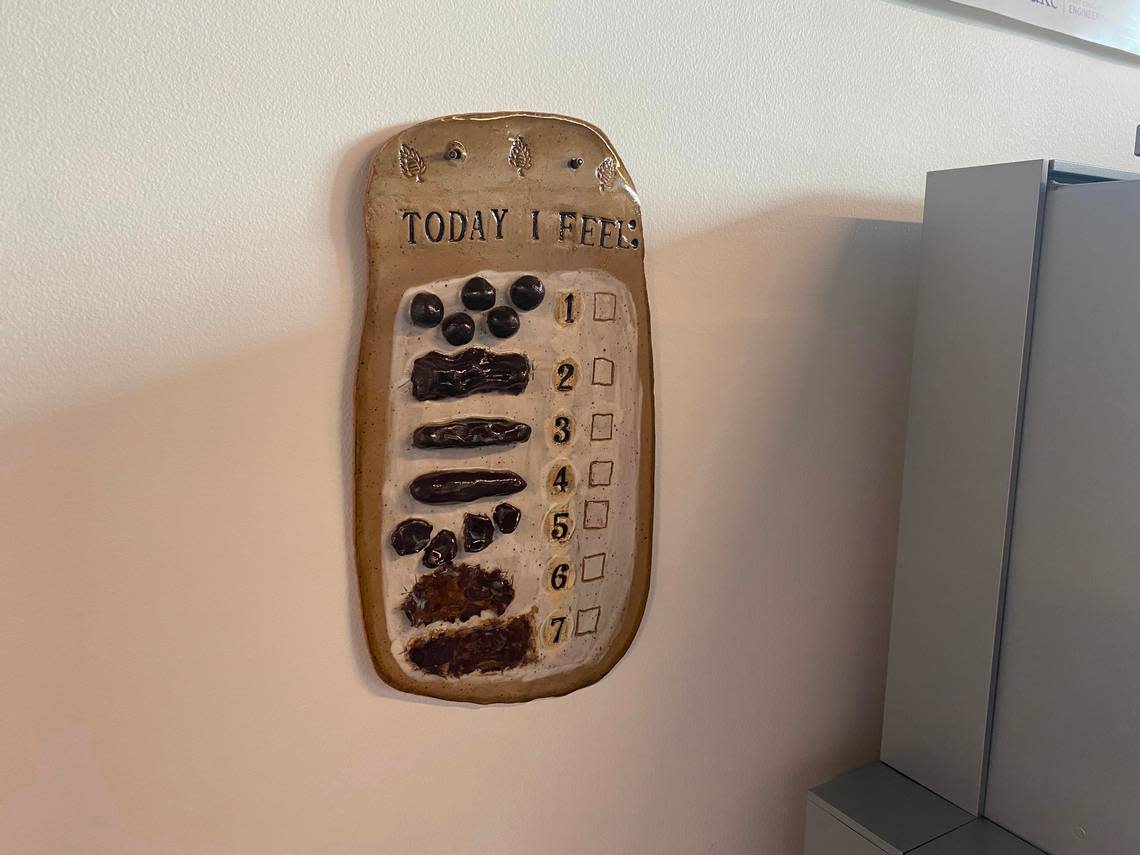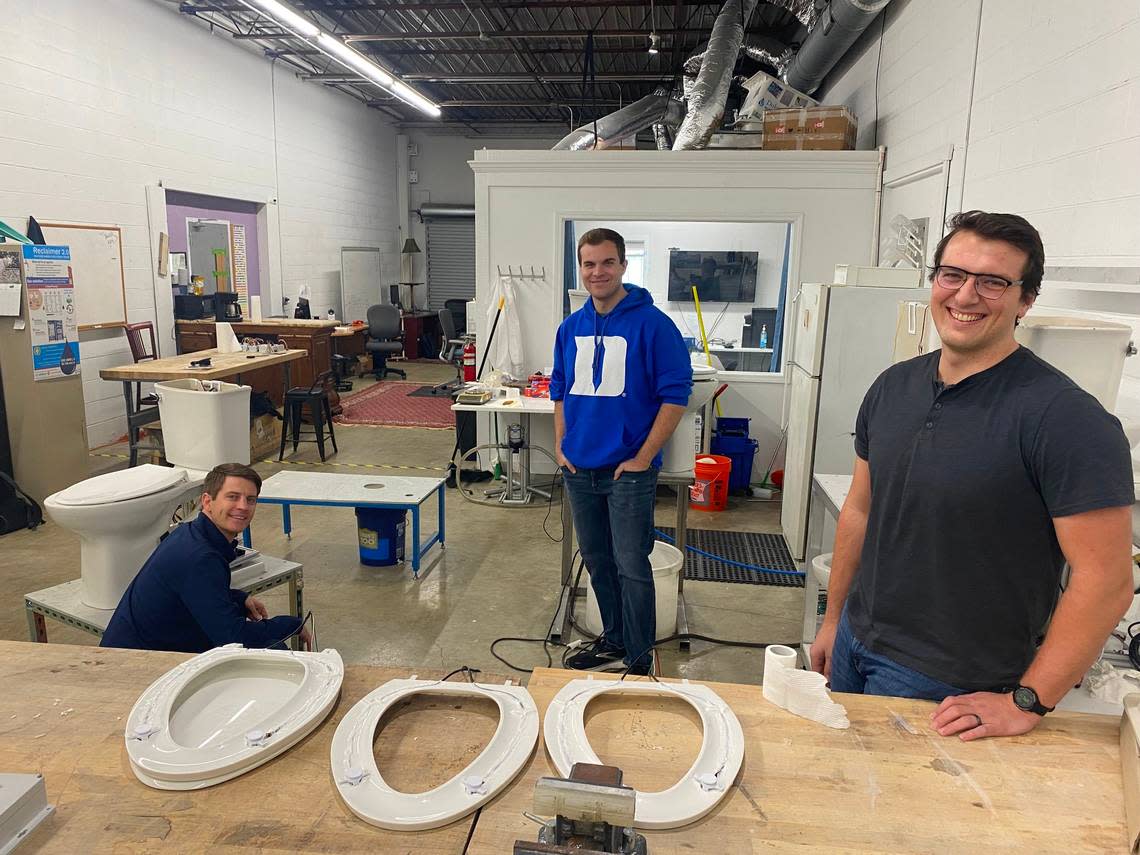Duke smart toilet flushes away poop but leaves valuable health information behind
Sonia Grego works in a world of poop. Scatological-themed artwork hangs outside her office alongside peer-reviewed papers on human waste. “We have poop emojis everywhere,” she said, pointing to a smiling tie-dye stuffed clump perched by her window.
Then there’s the actual excrement, chilled in refrigerators, waiting to be tested.
Grego is the director of Duke University’s Smart Toilet Lab, one of the few academic teams in the country researching smart toilet technologies. The nine-person team is housed on the fourth floor of the Chesterfield Building in downtown Durham. Founded in 2019, the lab is part of Duke’s Center for Water, Sanitation, Hygiene and Infectious Disease, known colloquially as WaSH-AID.
“We are addressing a very serious health problem, but we also want to demystify the fact that people don’t talk about poop in polite society,” Grego said.

The lab’s lead researchers met while working at the nonprofit RTI International in Research Triangle Park.
Many toilets get described as “smart,” from those that reduce water waste to those that offer creature comforts like automatic flushing and heated seats. But at Grego’s lab, the focus is on toilets that more efficiently (and cleanly) analyze the users’ digestive health.
“The (current) state of the art for stool analysis is that you need to poop in a container and collect it and handle it with your hands,” she said. “This is as gross as you think it is, and people hate doing it.”
What makes the Duke smart toilets smart
White and ceramic, the Duke toilets resemble conventional toilets from afar. But, instead of immediately flushing the poop into the sewer system, they move the stool into a separate chamber with cameras for specialized image processing. Once processed, data from these images offer medical experts valuable insights into their patients’ gut health.
Grego said the results collected from the Duke toilets have “the same analytical integrity as a sample collected in a conventional way.”
“The first question a physician asks is about people’s bowel habits,” she added. “People are very poor at recalling the consistency of their bowel movement. A smart toilet will do that objectively.”
Gut health is a common issue in the United States. According to John Hopkins Medicine, up to 15% of the population has irritable bowel syndrome, and another 1.6 million Americans are living with irritable bowel disease.

“The knowledge of people’s bowel habits empowers individuals to make lifestyle choices that improve their gut health,” said Grego, whose name is on the toilet’s patented technology.
The realities of human waste presented challenges. Poop varies by person and day. The Bristol Stool Chart includes seven different consistencies, and the smart toilets need to handle them all.
Duke stores its feces specimens in its wet lab, inside designated refrigerators set at various low temperatures. The materials are live and considered potential biohazards. One fridge is kept at a standard temperature — about 4 degrees Celsius (39 degrees Fahrenheit). Another is at negative 20 degrees Celsius (-4 F). The coldest, kept at negative 80 degrees Celsius (-112 F), holds deidentified patient samples with markers of diseases. The samples are provided by Labcorp, the major clinical lab-services company headquartered in Burlington.
Coprata puts new toilet to use
Multiple people in a household can use the toilets, with data tracked by individual. To commercialize the product, the technology is being licensed to the Durham-based startup Coprata, which was founded by Grego and her colleague, WaSh-AID director Brian Stoner.
Chase Moyle, a 28-year-old Duke grad, serves as Coprata CEO.
Coprata is testing pilot versions of its smart toilets in a few dozen households. After their stool is analyzed, users can access their digestive data via the startup’s app.
“We’re focused on capturing data from the toilet in a non-invasive way,” Moyle said.

Unlike the Smart Toilet Lab, Coprata doesn’t have a wet lab equipped to test actual feces. Instead, the startup team flushes clumps of miso wrapped in condoms to approximate bowel movements.
It’s a silly visual out of context. But in the world of smart toilet research, the seemingly sophomoric can breed sophisticated results.
This story was produced with financial support from a coalition of partners led by Innovate Raleigh as part of an independent journalism fellowship program. The N&O maintains full editorial control of the work.
Sign up for the weekly Open Source newsletter here.
